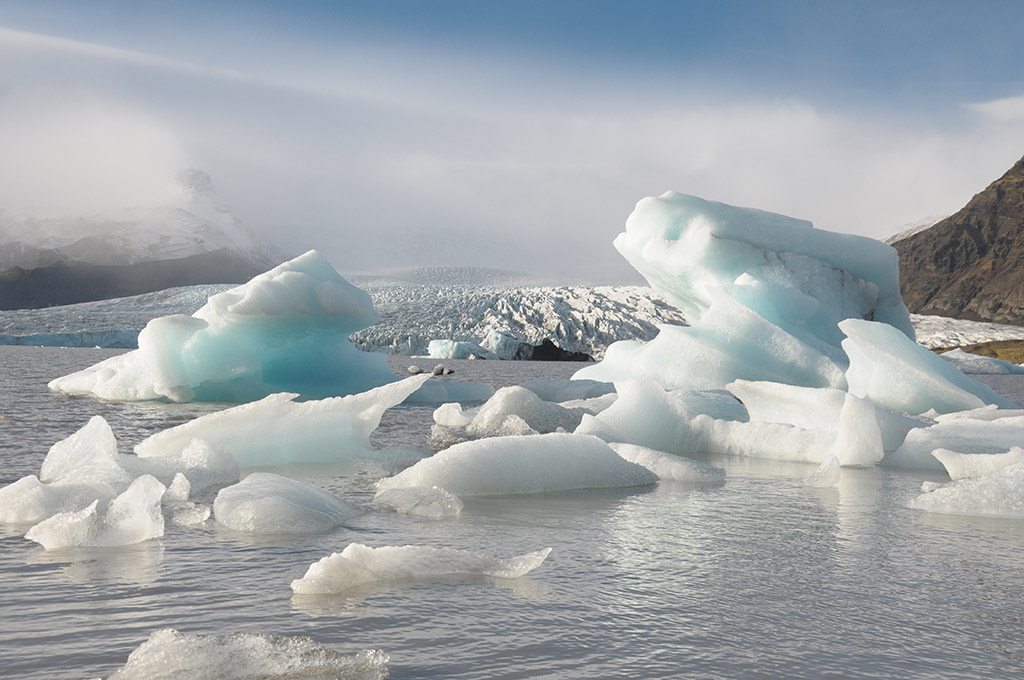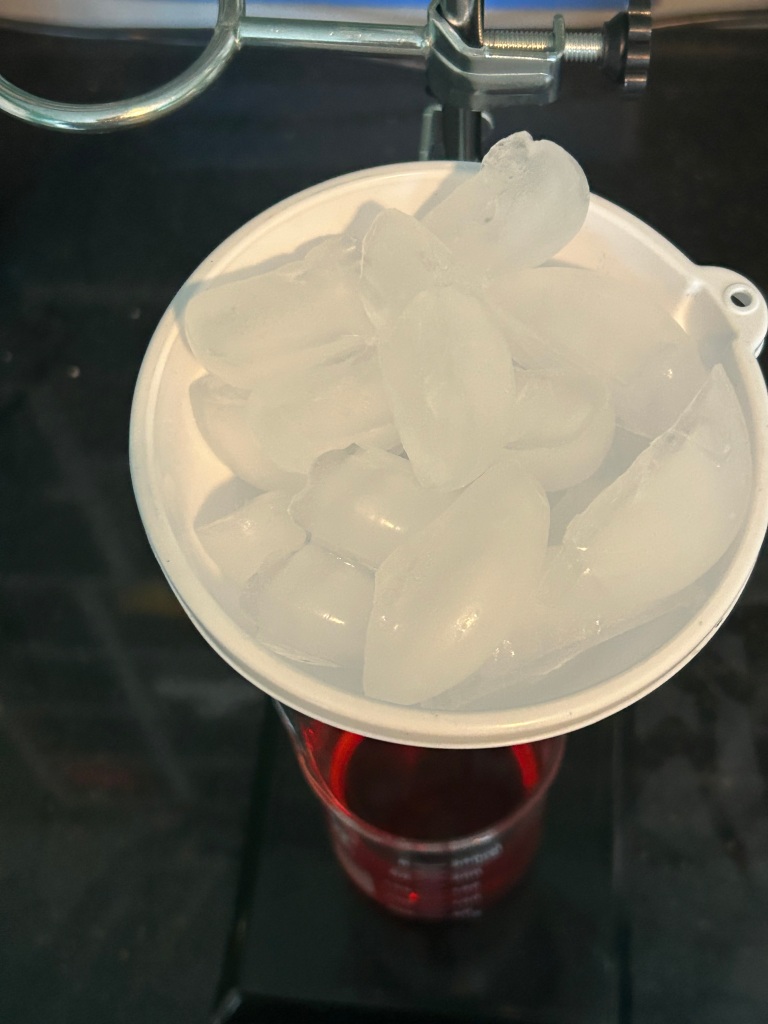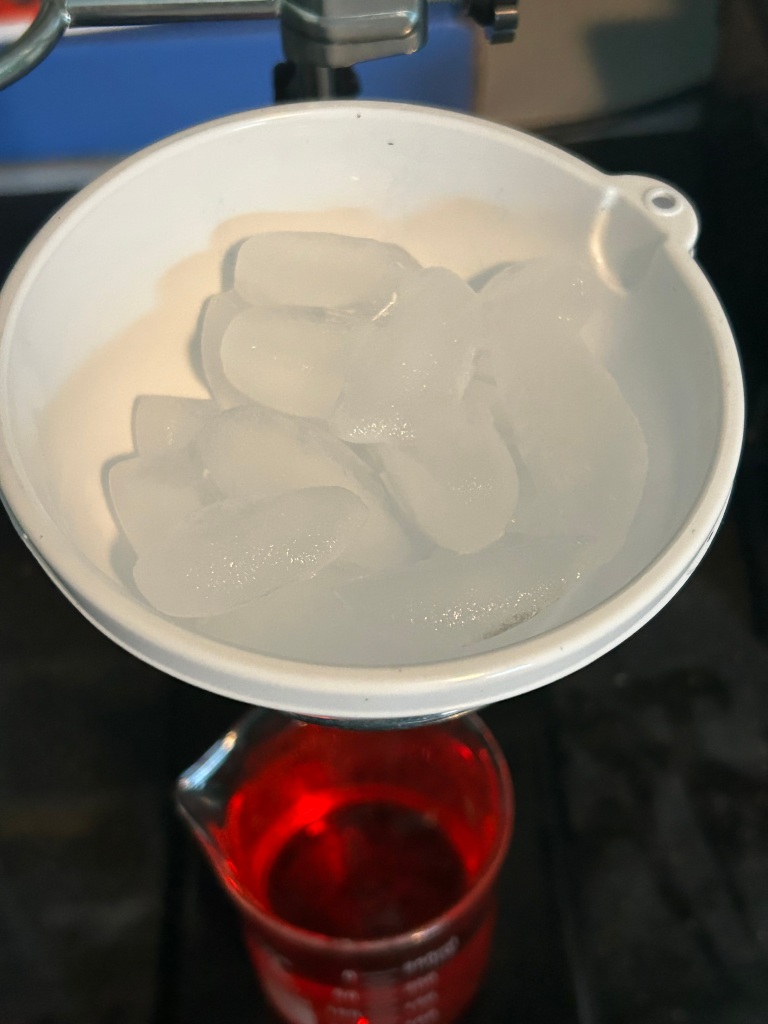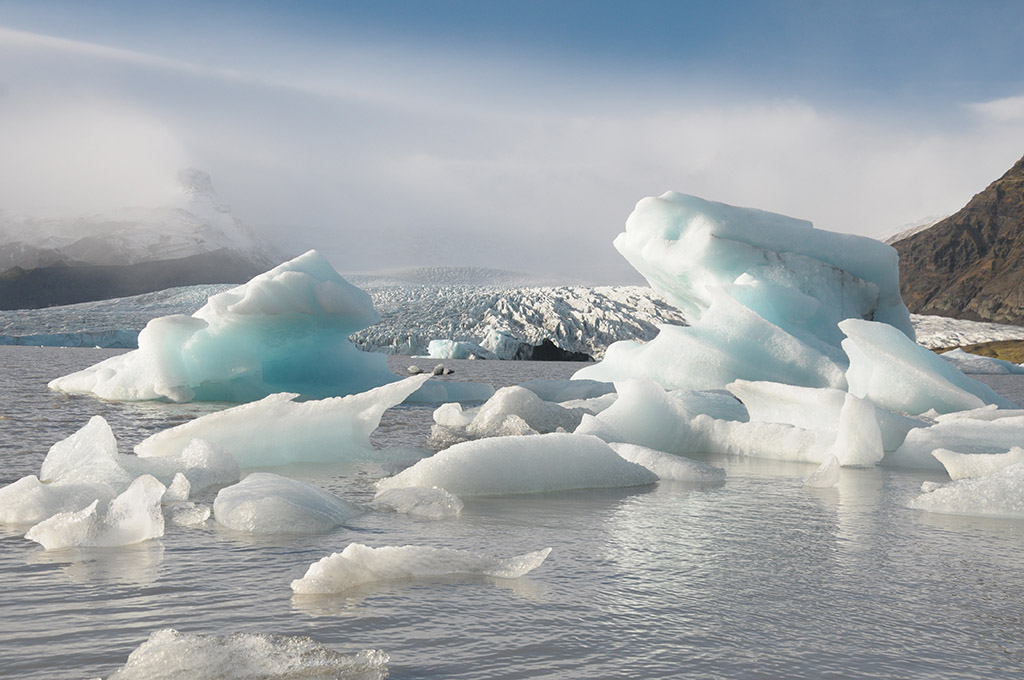
Melting glacier in Jökulsárlón Glacier Lagoon, Vatnajökull National Park, Iceland. Photo © 2024 Mark Aaron Alsip.
If this article’s title sounds a bit condescending … well, the topic I’m debunking came from an overwhelming number of quotes such as the following, made by self-identified followers of a certain political party. The invalid argument boils down to something like this:
“The oceans can’t possibly be rising because of melting ice. Look, just fill a glass with ice cubes and water. When the ice melts, the water level will not have changed,”
Sigh. The solution to this should be obvious, but since it doesn’t seem to be to a rather large number of people who go around saying things like this, it’s time to go back to grade school and explain a few things. The next time you see this argument, just point the speaker to this very simple explanation. Hopefully, it will get through to them.
First of all: Yes, if you have a block of ice already in the water, it’s going to displace the same amount of liquid whether it’s ice or if it melts. No argument. That’s not the problem here.
The problem is that majority of existing ice on the planet isn’t in the oceans. It’s on land.1 More on this in a moment. First let’s dive into our grade-school experiment and show the deniers why this is important.
Apologies, I didn’t happen to have a glacier or ocean handy, so I scaled things down a bit. Here’s our “ocean”: approximately 200ml of water. I died it red because I like the color red (and it’s more visible in photos):

And here is our land-based “glacier.” What’s important here is that just like the glaciers and ice caps we’re discussing here, the ice is not yet in the water:

Yes, that’s a funnel full of ice. To reiterate the analogy for the climate change deniers in the back, what we have here is a mass of ice (a “glacier”) that isn’t in the water (“ocean”) yet. This is a model for what we see here on Earth.
Now, let’s let some time tick off the clock… the “glacier” begins to melt.
After just 2.5 hours, here is what has happened to our “ocean”:

We’re off the scale on my beaker, but that’s around 75ml more water than was originally in our little ocean. Where did the water come from? Say it with me: “It came from our ‘land’-based ice.”
Here’s our partially melted “glacier”:

Just to drive this point home, let me return now to the banner image for this article, which I shot a few years ago of a melting glacier in Iceland:

See that big glacier in the background? It’s on the land. Those icebergs in the foreground? They broke off the glacier and have added to the volume of water flowing from this lagoon into the sea.
With most of Earth’s ice locked up on land, particularly in Greenland and Antarctica, this is something we should be worried about. According to NASA:2
“Greenland has been losing about 280 gigatons of ice per year on average, and Antarctica has lost almost 120 gigatons a year with evidence that both melt rates are increasing. A single gigaton of water would fill about 400,000 Olympic-sized swimming pools; each gigaton represents a billion tons of water.”2
So, you see, there is a big problem here. In fact, the problem is so big that it’s estimated that if all the Earth’s glacial ice melted, our oceans would rise by 230 feet.3
Rather than saying more, I’d like to let pictures do the talking for me. Please head over to amazing Conspiracy of Cartographers website4 and see for yourself at how many of the world’s major cities would look if we encountered this amount of sea level rise.4
References
(1) National Snow and Ice Data Center
https://nsidc.org/learn/parts-cryosphere/glaciers/glacier-quick-facts
Retrieved 05 Feb 2024
(2) Sea and Land Ice Melt (NASA)
https://mynasadata.larc.nasa.gov/basic-page/sea-and-land-ice-melt
Retrieved 05 Feb 2024
(3) How Would Sea Level Change if All Glaciers Melted? (USGS)
https://www.usgs.gov/faqs/how-would-sea-level-change-if-all-glaciers-melted
Retrieved 05 Feb 2024
(4) Conspiracy of Cartographers
https://conspiracyofcartographers.com/sea-level-rise-gallery/
Retrieved 07 Feb 2024
